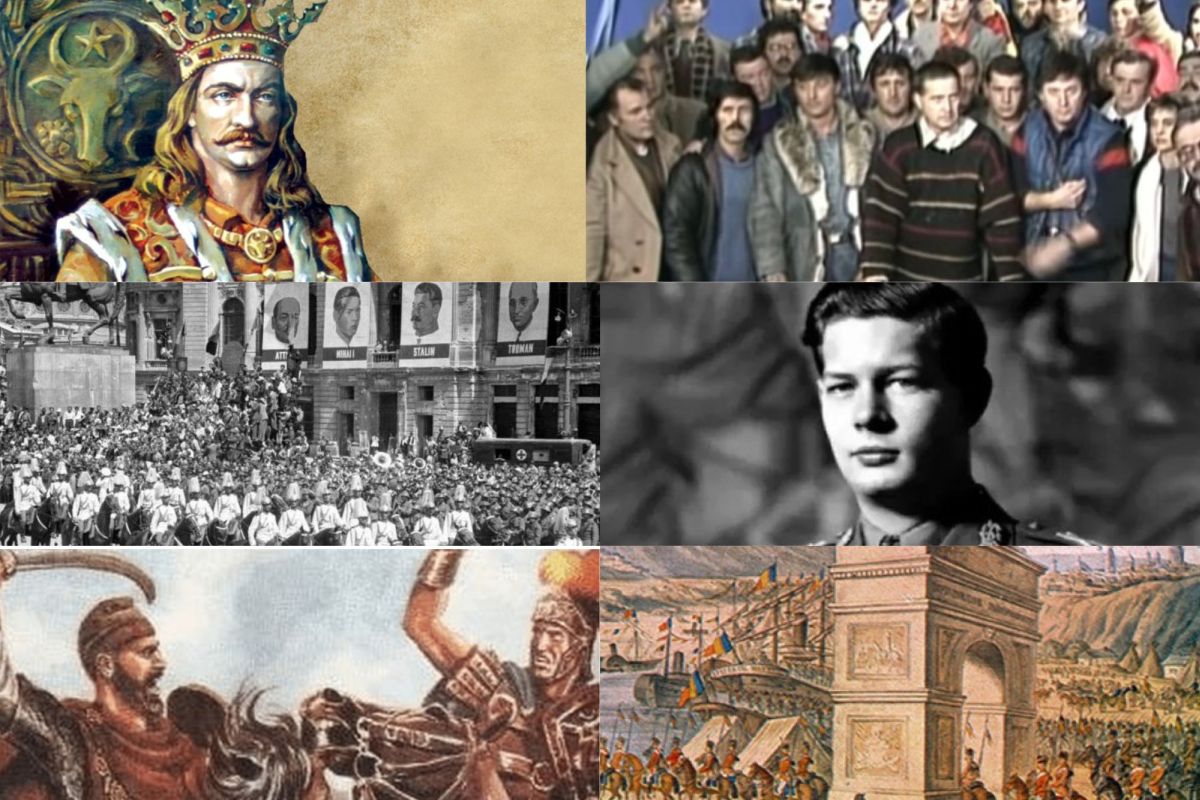90 years since the signing of the Balkan Pact
After WWI, countries wanted to preserve peace through treaties.

Steliu Lambru, 04.03.2024, 13:44
After WWI, the victorious states part of the Entente, that is France, Britain, Italy, Japan, the US and Romania, wanted to preserve peace through peace treaties, the League of Nations, which later became the UN, and regional alliances. Thus, regional alliances appeared in Central and South-Eastern Europe that sought to block the policy of the revisionist states. One of the alliances was the Balkan Pact or the Balkan Entente signed in the Greek capital, Athens, 90 years ago, on February 9, 1934, between Yugoslavia, Romania, Turkey and Greece. It had been preceded by the Balkan Bloc 10 years earlier, in 1924.
From Romania’s viewpoint, the Balkan Pact was part of a system of alliances designed to defend its borders on the north, east, south and west. Romania’s national defense doctrine saw the Soviet Union as the main danger to its security, so the signing of the alliance with Poland in 1921 secured defense for the north and the east. To the west, Romania had secured its border by signing the Little Entente, a mutual defense arrangement with Yugoslavia and Czechoslovakia in 1921. To the south, security was to be guaranteed by the Balkan Pact. The main inspirer and guardian of the alliances in Central and South-East Europe was France.
Why do states forge military alliances? It is a question to which experts in international relations have given answers such as economic interests, the similarity of political systems, values, ideologies, cultural and linguistic affinities, the pressures of the Great Powers and so on. American political scientist Randall Schweller has identified two major reasons for states to form military alliances. The first motivation is to balance the threat, which is usually defensive and tries to block the aggression of other states. The second motivation is alignment, which is offensive and whose main determinant is the compatibility of political goals. From this point of view, the Balkan Entente was meant to balance the threat, it was a defensive military alliance aimed at isolating Bulgaria, which was promoting an aggressive policy in the area, actively supported by the Soviet Union.
Military historian Petre Otu outlined the geopolitical and geostrategic features of the Balkan Entente: “It is a regional alliance. The actors are four states and it is based on the principles of balancing the threat, with the aim of protecting its status quo in the region, as established by the Paris Peace Conference of 1919 and 1920. Some say it was against Bulgaria and I do not deny such an intention of the initiators. But there is another important reason, as Nicolae Titulescu said: the Balkans were known as the powder keg of Europe. I think that what Titulescu said is relevant. He was right, as we had to end this endemic warlike attitude of the Balkans, reach and agreement and establish an area of peace and cooperation.”
Although driven by common interests, the states of the Balkan Entente put their own interests first. Petre Otu explains: “Three of the partners were Mediterranean states, Yugoslavia, Greece and Turkey, and their security efforts were oriented to this direction. They were not aimed at what particularly interested Romania. Greece had reservations about a possible Italian aggression in the Balkan Peninsula. Likewise, Italy was a danger to Yugoslavia. Romania and Turkey were two Pontic countries and there should have been a greater solidity. But there was the so-called Turkish reserve here. According to the understandings between Kemal Pasha and Lenin in the early 1920s, the two countries would be allies and Turkey was committed not to have a conflict with Moscow.”
Laudable in theory, the Balkan Pact was one that lacked cohesion in practice. Petre Otu: “Another problem of this regional alliance was the lack of a sponsor state, a hegemonic state. The Balkan Entente faced control attitudes from France, Italy and Britain, among which there were strong contradictions. In 1931, Italy and Britain encouraged the creation of a Bulgaria-Turkey-Greece Union. But France opposed it and bet on a Yugoslavia-Romania-Bulgaria deal.”
Regional alliances were useful in diplomatic terms but useless in military terms. For reasons of its own, within the framework of the Little Entente, Czechoslovakia did not clearly undertake to support Romania in the event of an attack. For the same reasons, neither Greece nor Turkey committed to support Romania in the event of an attack from the east. In conclusion, Petre Otu said that regional alliances only work if big players are also involved: “The Balkan Pact was an alliance of small actors and did not resist the conflicting interests of the Great Powers. In general, regional alliances of smaller actors have little viability in the system of international relations. They can be played by the big international actors, so the Little Entante, the Balkan Pact and the Romanian-Polish understanding did not withstand the extraordinary pressure of the Great Powers and the tensions in international relations.”
By the late 1940s, regional alliance systems were collapsing and World War II was breaking out. A long and bloody conflict followed, from which humanity emerged in 1945, struck by other tragedies and unfulfilled goals. (EE)





























